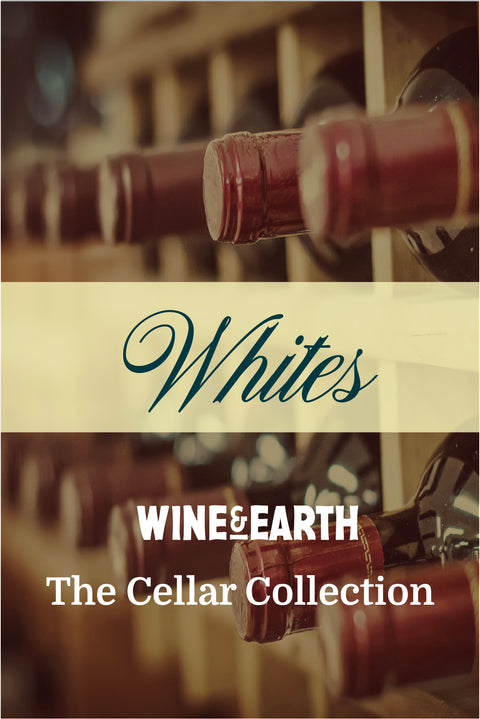Try out a range of sustainable wines
Sip, Savour and Save!


Breedekloof, Breede River Valley, South Africa
Blend: Cabernet Sauvignon, Merlot | 13.0% ABV
We are proud to offer this South African red wine made from a blend of Cabernet Sauvignon, and Merlot grapes. These wines are made from grapes, grown where once sheep grazed the lands and where the legendary Daniel Smiles (with nickname, Sixpence) was the shepherd. Opstal honours Sixpence and all the farm workers of their Estate with this easy-drinking, lifestyle range of wines.
This wine is easy-drinking and shows red berries, plum and hints of dark berry fruits, with a well-rounded finish.
Excellent with beef, lamb, cheese, duck, game, pasta in tomato sauce, pork, poultry and vegetarian dishes.
Best served at 15 – 18°C.
From the winemaker Attie Louw "I am the winemaker at our family wine estate in the Slanghoek Valley, about 1 hour's drive northeast of Cape Town. It's only in the last 10 years though since I joined the business with my dad that we have started to excel in making site specific wines where we have a high risk, high reward approach.
I have a great love for Chenin blanc and believe it is undoubtedly the variety we do best in SA and that it should be our calling card in the world. I also have a great passion for our terroir in Slanghoek and my aim is to show (mainly) Chenin (and other wines) from our valley specifically.
One thing I’ve learned in the years growing up and working in the wine industry is that wine as a product, the making thereof or the people behind it should not be taken too seriously and the keyword for me in my winemaking philosophy is drinkability."
The 100 hectare Opstal Estate’s rich history dates back to 1847 when JC Rossouw acquired the farm De Opstal bij de Fonteine.
Like a rocky crown, magisterial mountains circle the Breedekloof Wine Valley, effectively trapping its own climate inside the soaring peaks. Through this the Worcester Fault has pushed up hills of weathered sandstone and granite, crumbling into river pebbles and ancient layers of sedimentary minerals. Long and wide, the valley is carved through with the life-giving Breede River and its tributaries, from which first sprang agriculture in this isolated place.
Winemaking here is informed by this all-important river, antediluvian geology and the imposing mountains, which ensure high diurnal swings and slow ripening conditions for distinct wines that have a sun-imbued richness balanced by an inimitable stony freshness. Thirty families currently permanently live and work at Opstal.
2* (Moving on up)
Opstal Estate, established in 1919 and located in Breedekloof, South Africa, has a strong commitment to both environmental and social sustainability. The estate has recently adopted regenerative farming practices, emphasising the reduction of herbicides through mechanical weed control and investing heavily in composting to improve soil health. Their strategy includes composting grape skins, old vines, and poles, combined with chicken manure, which is reintroduced to the vineyard. They've also implemented biological pest control, releasing indigenous bugs to combat infections, a practice that has shown significant results over the past three years. Regarding environmental impacts, while the vineyard has faced challenges from unusually wet weather conditions, canopy management practices are in place to prevent grape rot. Their approach to biodiversity emphasizes habitat preservation, native plant promotion, and involvement in local conservation projects. On the social sustainability front, Opstal Estate actively engages with the local community, initiating projects and collaborating with local organisations. A majority of their blue-collar staff earn above the minimum wage, and many employees and their families live on the farm. The estate also prides itself on inclusivity, with strong female representation in its leadership and significant contributions from under-represented demographics.
Red | Still | 75cl | 13% ABV
Vinification: Grapes are picked later in the harvest to allow fuller fruit expression. Wine is fermented in stainless steel tanks prior to being blended and bottled.
This website is for adults (18+) in the U.K. We're focused on planet health and curate wines that are produced responsibly. Your health is also important, so please enjoy these wines responsibly. If you need advice, for you or a loved one, visit Drink Aware.
These are seriously good wines, that won't leave a hangover for Planet Earth. We curate wine lists for The Eden Project and others. Order by the bottle or case, send a gift, or join our wine club. Free carbon neutral delivery from £200. Welcome to better wine. About us.
01483 562 176 (Mon-Fri 9am - 5pm) hello@wineandearth.com
Registered in England at 6-8 Woodbridge Meadows, Guildford GU1 1BA, UK.
Company Number 11701050.
Accredited with a mark of local provenance, quality and sustainability and supporting the distinct and special nature of the Surrey Hills.
We are committed to being a force for good with positive impact and high environmental and social performance.





